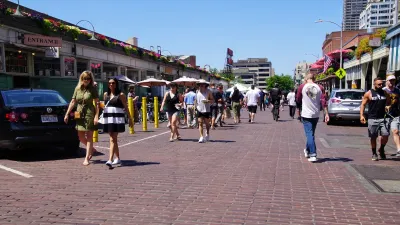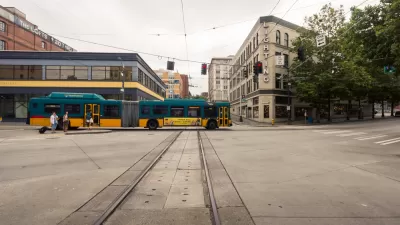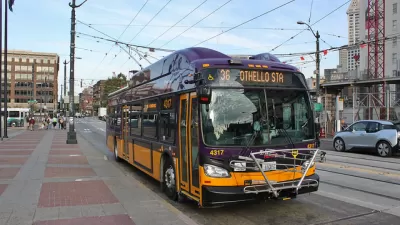The victory for homeless and very low-income transit riders is a reminder of the importance of grassroots organizing.

Last year, organizations in King County provided more than 1.4 million Metro tickets to homeless people, refugees, and other low-income people struggling to afford trips to shelters, job centers, and other crucial resources.
Metro's Human Services Ticket Program, which partially subsidizes tickets for human services agencies to distribute, launched 25 years ago after ongoing public demonstrations by the agencies and their clients. And in September, ongoing organizing once again motivated King County Council to unanimously move to strengthen the program.
Katie Wilson of Seattle's Transit Riders Union explains in the Seattle Transit Blog that rising housing costs and homelessness rates have drastically increased the need for tickets. But a cap on allocations has limited the number of tickets available, and fare increases have made even the discounted price too much for some organizations.
The problem may have continued to get worse, Wilson writes, if not for a dedicated grassroots effort to get the Council to address it. Now, Metro will raise the cap on ticket allocations and cut the price of tickets in half, as well as collaborate with other county stakeholders to fulfill "transit’s role in contributing to the social safety net for the lowest income residents."
In addition to more comprehensive local measures, Wilson turns an eye to big-picture solutions like taking on the State Legislature and integrating the region's transit system—noting:
Many of the hundreds of low-income people who have participated in struggles for affordable transit would love to take on these broader transformative issues, if only they didn’t have to be more immediately concerned about getting from A to B.
FULL STORY: Big Wins for Very Low-Income and Homeless Transit Riders

Planetizen Federal Action Tracker
A weekly monitor of how Trump’s orders and actions are impacting planners and planning in America.

Maui's Vacation Rental Debate Turns Ugly
Verbal attacks, misinformation campaigns and fistfights plague a high-stakes debate to convert thousands of vacation rentals into long-term housing.

Cuomo Is the Candidate of Both NIMBYs and Developers. What Gives?
In the New York City mayoral race, odd bedfellows align to preserve the housing status quo.

The Subversive Car-Free Guide to Trump's Great American Road Trip
Car-free ways to access Chicagoland’s best tourist attractions.

San Antonio and Austin are Fusing Into one Massive Megaregion
The region spanning the two central Texas cities is growing fast, posing challenges for local infrastructure and water supplies.

Charlottesville Temporarily Has No Zoning Code
A judge ordered the Virginia city to throw out its newly revised zoning code, leaving permitting for new development in legal limbo.
Urban Design for Planners 1: Software Tools
This six-course series explores essential urban design concepts using open source software and equips planners with the tools they need to participate fully in the urban design process.
Planning for Universal Design
Learn the tools for implementing Universal Design in planning regulations.
Heyer Gruel & Associates PA
JM Goldson LLC
Custer County Colorado
City of Camden Redevelopment Agency
City of Astoria
Transportation Research & Education Center (TREC) at Portland State University
Jefferson Parish Government
Camden Redevelopment Agency
City of Claremont





























